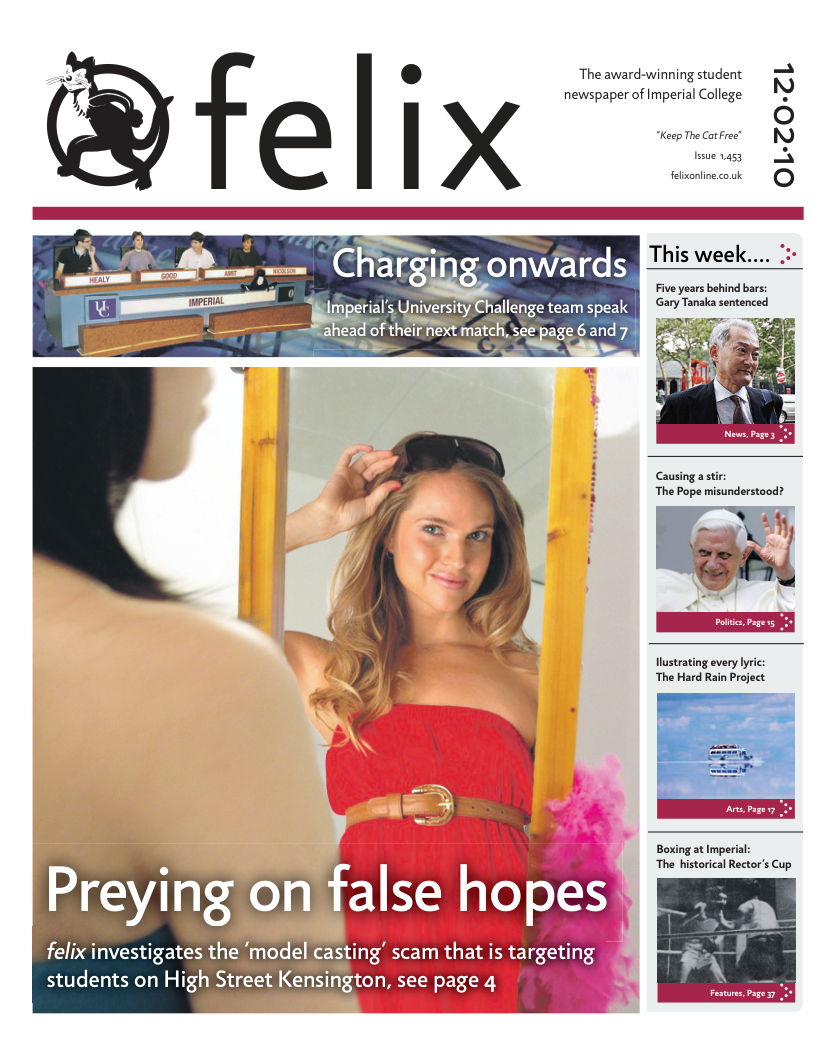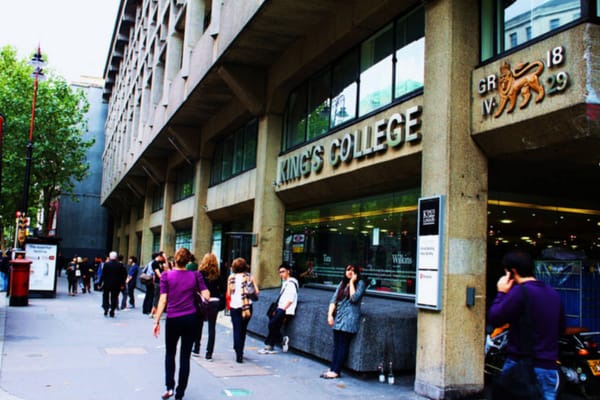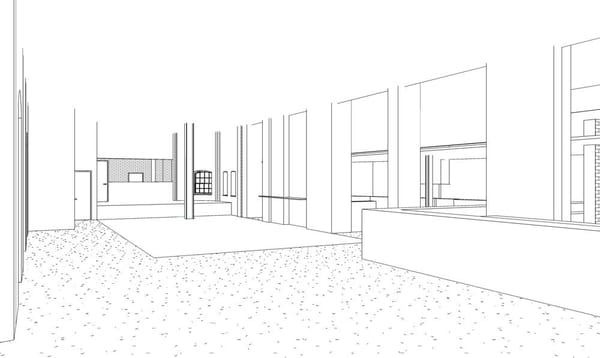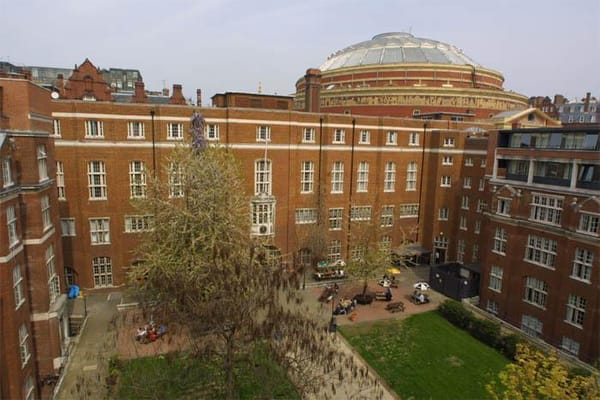College's Most Famous Geeks
As Imperial's University Challenge team look to secure a place in the semis, Jia-Ou Song talks to the boys.
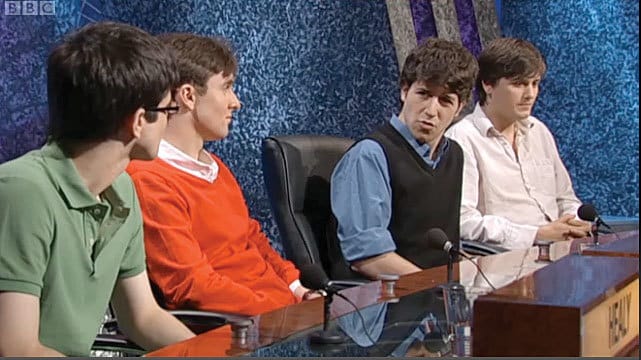
When the gong sounded, everybody cheered, for Imperial College London had won!
That was in year 2001, when the Imperial team - Siegfried Hodgson, John Douglas, Captain Gavin Estcourt and Alexander Campbell – defeated St. John’s College, Oxford by 250 points to 195 points, leaving in their wake Cranfield University, Durham University, Manchester and Hull.
In 2002, Imperial valiantly defended the title, but lost out in the eleventh-hour of the final to Somerville, Oxford by a margin of only 15 points. Since then, Imperial College School of Medicine have twice put on a show, but Imperial as a whole sadly dropped off the radar for the while... until now. Monday, 7th September, 2009 saw Ciarán Healy, Simon Good and Benedict Nicolson, captained by Gilead Amit with reserve Edward Brightman officially press the buzzers for the first time. For their first appearance on the 39th series of the programme, they were accompanied by a felix cat. In the first show, our team accumulated 175 points to University of Southampton’s 135. In round two, the team completely outclassed St. Hugh’s College, Oxford with an utterly fabulous 280 points to the opponents’ 80.
Quarterfinals. For those who have been living under a text- or lab book all year, each team must win two quarterfinal clashes before proceeding to the semi-finals. Against University of Edinburgh, Imperial produced an awesome 240 points to their 110.
As we eagerly anticipate the boys’ next move, is it not time to find out a little bit more about the people behind the names? How do they know all that sports and arts trivia? What methods did they use to prepare for the onslaught? And since when does Gilead know so much about everything? We hunted them down for your benefit, and this is what we found out...
felix: University Challenge quizzes vary wildly on content, how did you prepare/do you know information on topics that are not your ‘speciality’, i.e. your course?
Edward: “Some team members did more diverse A-level subjects such as History and English, instead of just the usual sciences, which helped a lot. Other topics are a combination of practice-questions from quiz books, and an ability to make good guesses!”
Ben: “I’ve not done much specific preparation outside my area. However every time I hear a hard fact, like a name or date, I have put special mental effort on trying to slot it into my brain somewhere. In fact, I tried a little reading up on things that non-mathematicians might assume a mathematician knows. This is an area we all dread: not being able to answer a question in our area. Paxman often starts a question ‘In maths...’, or ‘In physics...’ etc. It puts us on the spot.
In a sense Amit and Good, who both study physics, had it easy; if they did not know an answer to such a question, then they could trust the other one to jump in. However if neither of them knew the answer then it just must be particularly obscure question.”
Ciarán: “Personally I’m not sure it’s possible to do much useful preparation when it comes to learning things, due to the sheer range of possible subjects for questions. However there are things you can do in preparing for the quiz itself, being good at guessing is important and that partly comes with doing practice questions, and we all improved our speed on the buzzer by competing against each other in practice. I was actually pretty poor generally on my own subject, chemistry, I’m pretty sure I got more wrong than right on it. Partly it’s down to the fact that I was only a first year, or right at the start of second, when the filming was done, and lots of science questions – particularly for chemistry – seem to come from more difficult material later on. “
Gilead: “After every match we played we promised that we’d definitely revise before the next one. That never happened, of course, and so most of our preparation came from informal quizzing. When it comes to a show like University Challenge, you either know your general knowledge or you don’t – what distinguishes teams is how good they are at making intelligent guesses and how fast they are on the buzzer.”
Simon: “We had sets of University Challenge-style questions that we went through as a team quite regularly, especially in the immediate run-up to the matches. I think we used them to familiarise ourselves with the format of the show, rather than as a source of new facts. Although a question we had practiced the day before did come up in one of our matches. I made very little preparation individually – I did not go trawling through encyclopedias or anything like that. I just relied on what knowledge I already had. I think a lot of what I know comes from having had wide academic interests as a child – in fact, I think I picked up most of my general knowledge when I was younger.”
felix: Has Imperial contributed to this width of knowledge in any aspect? For instance, do you take any business, language or humanities options? Gilead: “One of my most cherished beliefs – or in other words one of my profoundest delusions – is that scientists can be better-equipped to answer questions on history or art than any politics student would be to face a question on quantum physics. Scientists have a tremendous advantage in that respect, and it gives me a huge amount of pleasure that we were able to show the world that four hard scientists and a fuel cell researcher can discuss Dante and Hobsbawm with the best of them.”
Ben: “It is a great asset that Imperial is in South Kensington, and generally London. I enjoy being able to go to the V&A and other museums in London. One question was about a picture I had literally seen the day before in the national gallery, although that question has not been shown!” Edward: “I did take Chinese evening classes for a term but I do not know how much that will have helped!”
Ciarán: “I am doing a humanities option, politics, this year, and I did one in history last year. I am sure it helped a little, although I have always been interested in the humanities anyway, I almost chose to do a degree in history, so I have picked up lots of bits and pieces of information just from taking an interest in things.”
Simon: “Besides physics, very little I think, though that is no fault of Imperial’s – you’re meant to be given a general knowledge of things at school, not university. I do not take any non-physics options.”

